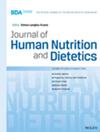Prevalence of Reported Dietary Supplement Use in 2019 Older Adult (≥ 55 Years) National Alzheimer's Coordinating Center Participants With Normal Cognition, Mild Cognitive Impairment or Dementia
Abstract
Background
In those with mild cognitive impairment (MCI) and dementia, nutritional intake decreases, increasing nutritional deficiency risk. Dietary supplements (DSs) may be an important source of nutrition, but recent insight into their use in those with normal cognition (NC), MCI or dementia is lacking.
Methods
A cross-sectional study design determined prevalence for reported use of 12 DS categories and 19 individual DSs based on co-participant report in 9517 older adult (≥ 55 years) National Alzheimer's Coordinating Center (NACC) participants diagnosed with NC (n = 5361), MCI (n = 1800) or dementia (n = 2347) in 2019. Multivariable binary logistic regression compared reported DS use prevalence between NC, MCI and dementia adjusting for demographics.
Results
Reported use of any DS was highly prevalent (NC: 76.6%, MCI: 73.9% and dementia: 69.6%). For all DS categories and many DSs, reported use was significantly lower in dementia compared to NC. Prevalence of reported use progressively declined from NC, MCI and dementia for 8/12 DS categories, including any vitamin (NC: 71.2%, MCI: 68% and dementia: 62.4%) and any mineral (NC: 34.8% MCI: 28.2% and dementia: 23.5%). This trend was also observed for 4/19 DSs, including vitamin D (NC: 49.2%, MCI: 41.2% and dementia: 36.7%). For vitamin B12 (NC: 15.5%, MCI: 18.2% and dementia: 18.5%) and melatonin (NC: 6.0%, MCI: 7.3% and dementia: 7.9%), prevalence increased from NC to MCI and from NC to dementia.
Conclusion
For many DSs, prevalence was significantly lower in dementia compared to NC. Reported use of any DS was highly prevalent in NACC older adults with NC, MCI or dementia in 2019.

 求助内容:
求助内容: 应助结果提醒方式:
应助结果提醒方式:


